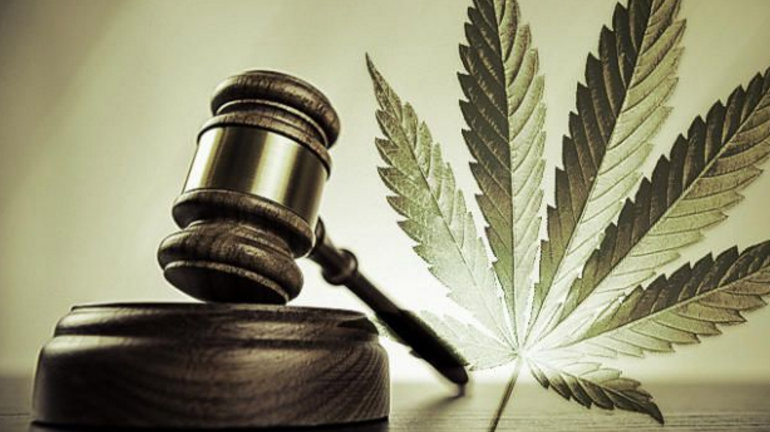Over the past few years, there has been a significant change in the public?s perception of marijuana. Once cast as a dangerous drug, marijuana has come to be seen in a much more innocent and benign light than in years past. This shift in how marijuana is viewed has been reflected in the change of many states? laws regarding the use, possession and distribution of the drug. While some states have legalized marijuana outright, many others have decriminalized it or made it legal for medical use only. While the effects of marijuana are believed to pale in comparison to those of alcohol, ignoring the risks of marijuana use by drivers is to do a great disservice to all motorists. Impairment of any kind spells danger for road safety, and marijuana is certainly no exception. In our home state of New York, marijuana is legal for medical use only. Some states are more lenient than others in medical marijuana prescriptions, and while New York might not be one of the most extreme in handing out prescriptions indiscriminately, it is common enough to necessitate public awareness of the dangers of impaired driving from marijuana.
Marijuana Legalization and Impaired Driving
The state of Washington provides a snapshot of how legalization might impact the frequency of marijuana use by drivers. In 2014, the number of fatal accidents involving drivers under the influence of marijuana more than doubled from the previous year, coinciding with the legalization of marijuana in Washington. One troubling aspect of marijuana legalization and its impact on impaired driving comes from a study by the Colorado transportation department. Colorado fully legalized cannabis in 2014 and, despite a public awareness campaign stating that drivers under the influence of marijuana would receive DUI citations, over 20 percent of marijuana users weren?t aware of the fact that it is illegal to drive after consuming products with THC. In other words, too many users assumed that simply because a drug is legal, it is okay to drive after using that drug.
Difficulty in Detecting Driver Marijuana Use
Perhaps the biggest challenge in combating impaired driving stemming from marijuana use is the difficulty in detecting its presence in drivers. There is no equivalent for a Breathalyzer when it comes to THC levels. Officers are trained to identify signs of marijuana use, especially in Colorado, but it is still left up to the discretion of the officer. To further complicate matters, everyone is different in how they are affected by marijuana use, even more so than with alcohol. Even the testing of blood levels does little to demonstrate how greatly a person?s performance behind the wheel is impacted by marijuana.
What The Research Says
While there is much left up for debate over the extent to which marijuana inhibits driver performance, it is not all speculation. There are studies backing claims that marijuana use is very inhibiting. Two studies conducted in Europe said that someone under the influence of marijuana was more than twice as likely as sober drivers to cause fatal accidents. However, a study conducted by the National Highway Traffic Safety Administration found no significant increase in the risk of crashes after cannabis use. Why, then, are there discrepancies among these studies? One theory is that marijuana, being a recreational drug, is often used in conjunction with other performance-inhibiting substances, such as alcohol. Other studies suggest that the use of one substance might even strengthen the effects of the other, making the use of both substances significantly more dangerous than the use of each substance by itself. So, how much is a person?s performance is impaired by marijuana use? It seems as though the answer is a confounding, ?It depends on the person.? However, it can be confidently said that the likelihood of cannabis use improving driver performance is slim to none. In studies conducted on closed courses and driving simulators, cannabis was shown to impair a driver?s eye movement control, weaving ability and reaction time, all key aspects of a driver?s performance. Advocates for marijuana use frequently defend the marijuana-impaired driving argument by pointing to the well-known effects of alcohol as a comparison. It is shown in study after study that alcohol does indeed have a much more significant impact on driver performance than marijuana. Yet, simply because alcohol is more harmful than marijuana when it comes to a driver?s performance doesn?t mean that we are better off ignoring the impact of marijuana on road safety. Some marijuana users may show very few signs of being impaired after use, but many other users might actually see their performance behind the wheel suffer greatly from the effects of THC. The fact is that we have to be vigilant about marijuana use among drivers and treat it as we would other substances that impair driver performance. Legalization, decriminalization and medical use of marijuana seem to be increasing the number of marijuana users and, therefore, the number of drivers under the influence of marijuana. That means we must be able to find ways to address the impact that it might have on road safety. The debates over the safety of marijuana use and the practical applications for medical purposes are sure to continue with much depth and controversy as more and more states revisit their laws on marijuana. The decision to use marijuana legally is largely a personal one, and the decision to legalize or decriminalize its use, whether for medical purposes or not, has thus far been up to each individual state. However, marijuana used by drivers is a much more complicated issue, one that involves more than personal freedom. If someone under the influence of marijuana gets behind the wheel of an automobile, the stakes are no longer that of an individual, but of everyone they share the road with. No matter what choices individuals or states make, safety awareness about the use of marijuana by drivers must be a central part of the discussion.





